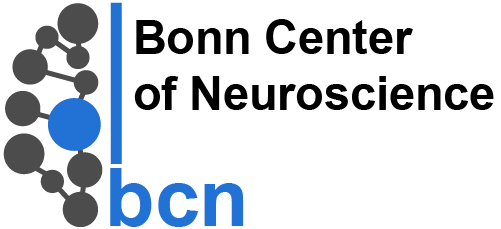Mission: Malignant brain tumors are one of the most devastating CNS diseases. They combine short survival with a high symptom burden. The key task for the future is to reduce the burden of disease in patients with malignant brain tumors by both survival prolongation and amelioration of the symptom load.
Clinical Structures: The University of Bonn Medical Campus has a comprehensive Center of Neurooncology with hand-in-hand cooperation between all specialities involved, a large clinical trials center and highly experienced neurooncologists on all key positions: Neuroncological surgery (H. Vatter, M. Schneider), Division of Clinical Neurooncology (U. Herrlinger) and the Department of Radiation Oncology (F. Giordano) share their in-patient facilities and are supported by the Institute of Neuropathology (T. Pietsch; Brain Tumor Reference Center) and the Department of Neuroradiology (A. Radbruch). Besides a long-standing tradition of performing phase II/III trials, this structure allows for bringing preclinical concepts quickly into clinical trials and is a strong base for translational projects associated with clinical trials including neurocognitive research (C. Helmstädter, Department of Epileptology) and outcome research (e.g. quality of life, N. Schäfer, Division of Clinical Neurooncology)
Research Groups and Institutes: Besides the above mentioned research structure for clinical trials, the IRTC Neurooncology cooperates on the University of Bonn Medical Campus with other groups interested in brain tumor biology focusing on immunology of brain tumors (M. Hölzel, Institute of Experimental Oncology; P. Salomoni and M. Fuhrmann, DZNE) and electrophysiological aspects of brain tumors (D. Dietrich, Department of Neurosurgery). Electrophysiology and a focus on epilepsy-associated tumors (A. Becker, Institute of Neuropathlogy) build the bridge to the activities of the IRTC Epilepsy.
Research: A major focus of IRTC Neurooncology research is laid on the clinical development of new therapeutic approaches for patients with glioblastoma (M. Schneider, F. Giordano, U. Herrlinger). A phase III trial (CeTeG/NOA-09) has already shown superior efficacy for the CCNU/TMZ combination chemotherapy in newly diagnosed MGMT-methylated glioblastoma. All trials are accompanied by translational programs including detection of new molecular and cytological prognostic signatures which may facilitate personalized therapeutic approaches (T. Pietsch, A. Becker, J. Weller, M. Hölzel), liquid biopsy strategies for detection of progression and pseudoprogression (K. Reiners), AI-based prediction of therapy response based on analysis of MRI textural features (D. Paech, A. Radbruch), and analysis of quality of life and neurocognitive parameters throughout the trials (N. Schäfer, J. Weller). Histological and molecular analyses are also aimed at better understanding the pathophysiology of glioblastoma and ultimately developing new treatment strategies that can be brought into clinical application. In particular, cell-cell interactions within the glioblastoma tumor cell network and the interaction of the glioblastoma cell networks with neuronal and immunological networks are studied. These investigations use techniques such as multiplex immunofluorescence analyses (M. Hölzel), in vitro models (organoids, slice cultures; M. Schneider), electrophysiological analysis of cell-cell communication (D. Dietrich, H. Beck) and somatic mouse models of different subtypes of glioblastoma for analyzing the contributions of immune cells to therapy response and resistance (F. Nebeling, P. Salomoni, M. Fuhrmann). Preclinical data describing effects of CX43 inhibition on tumor network formation, tumor cell communication and response to chemotherapy (M. Schneider, U. Herrlinger), have led to a phase I trial which will explore this therapeutic principle in the clinical setting.
